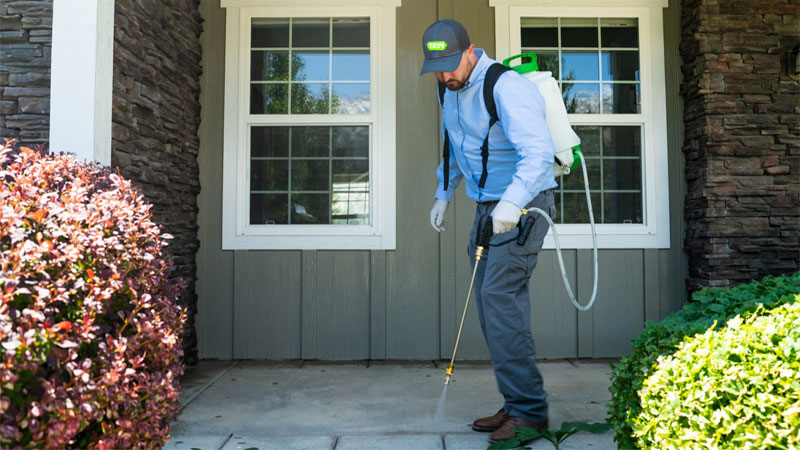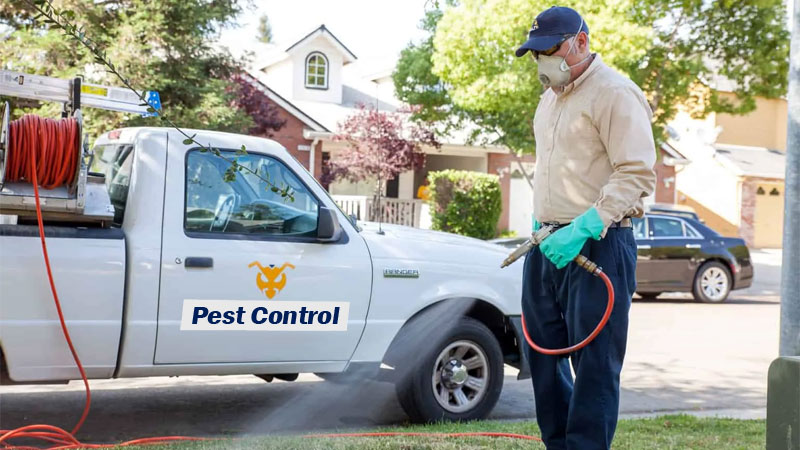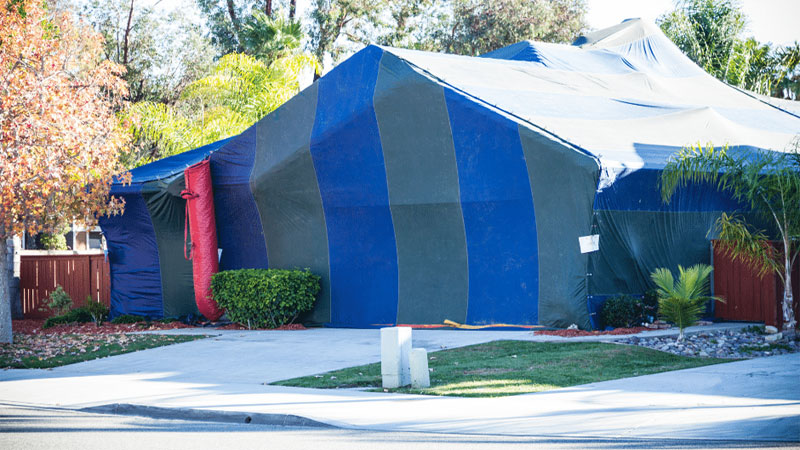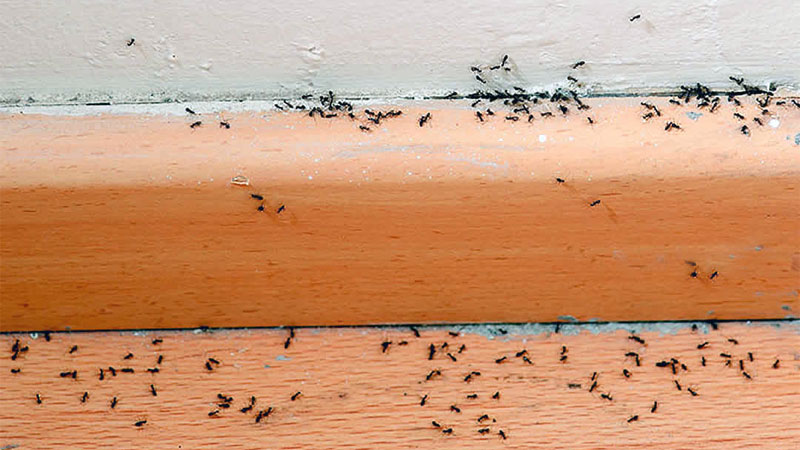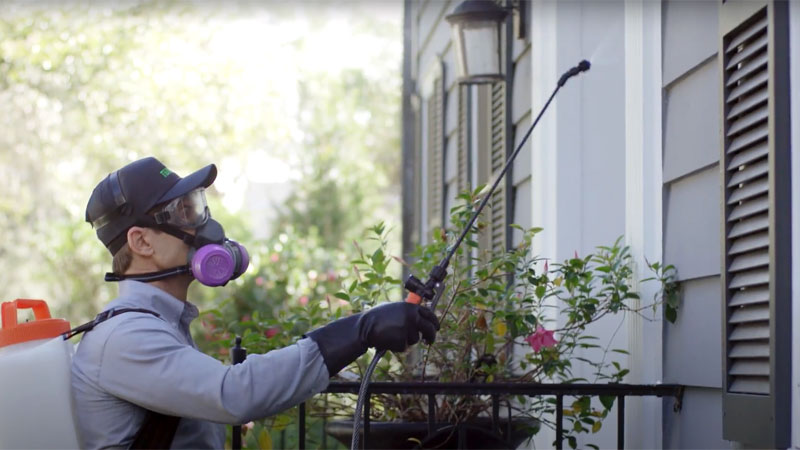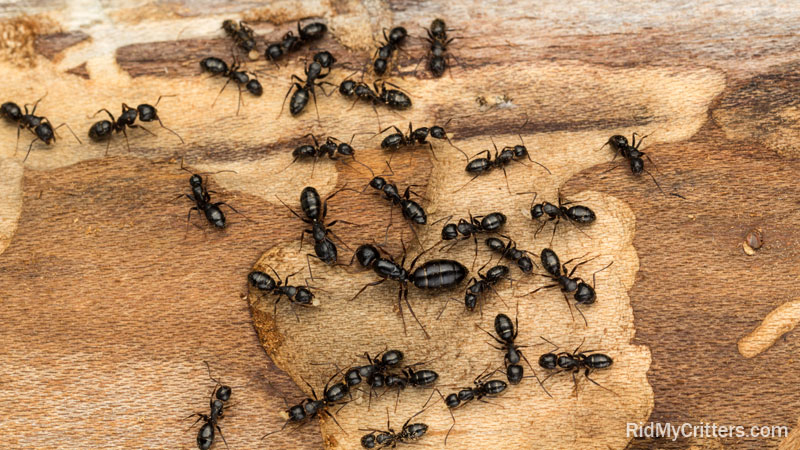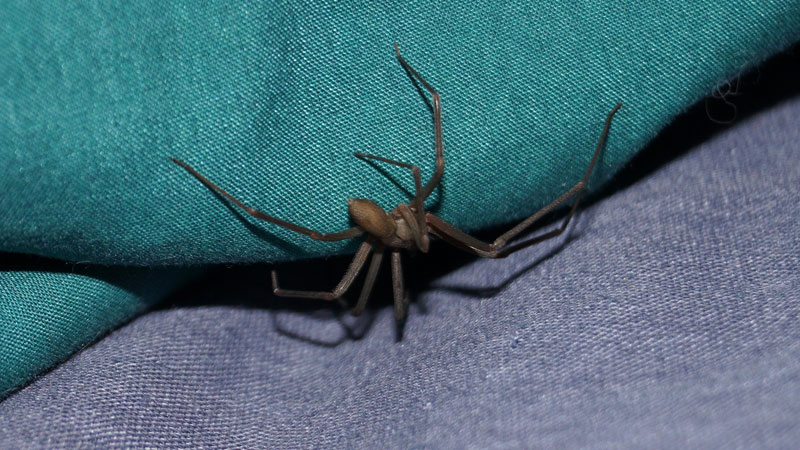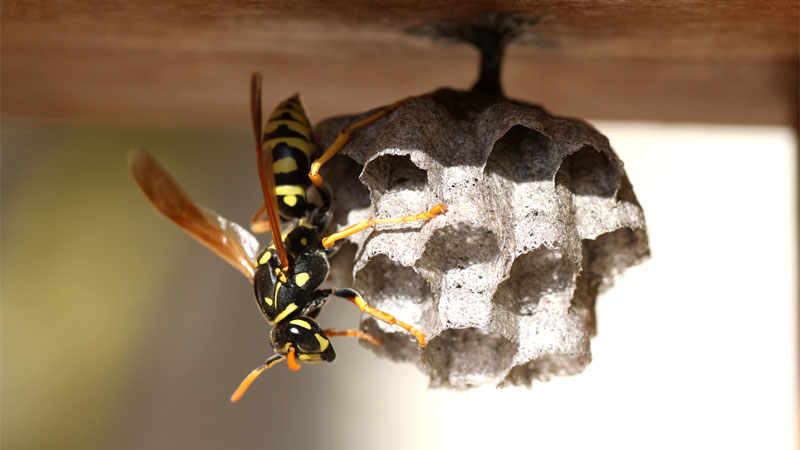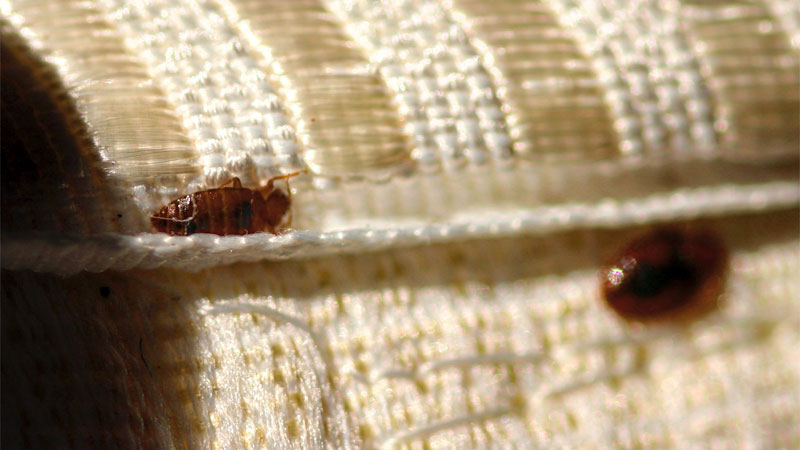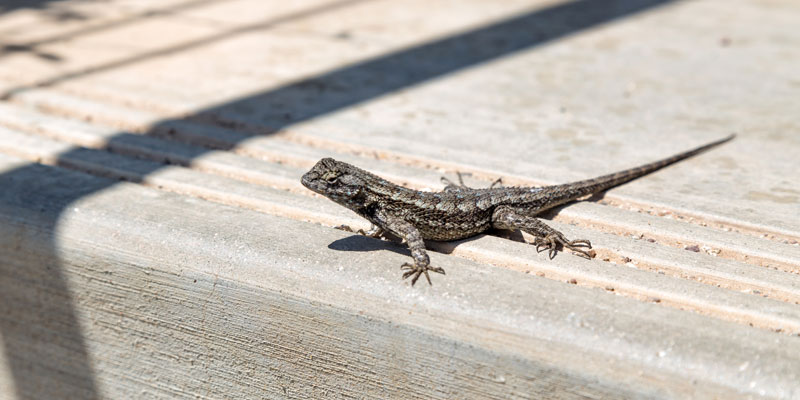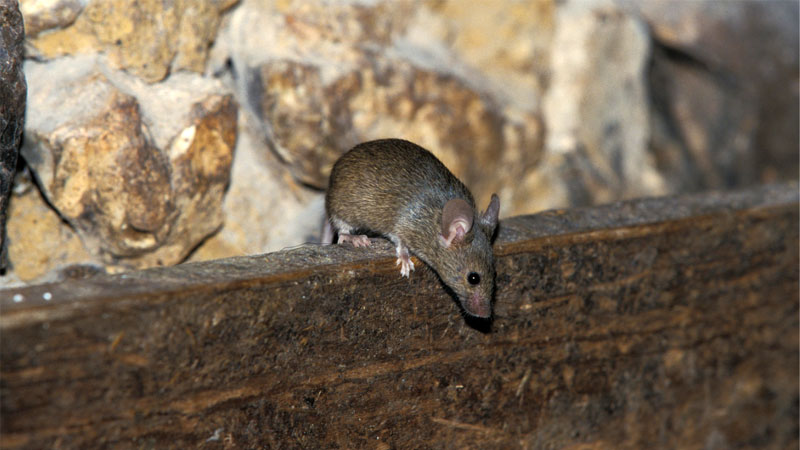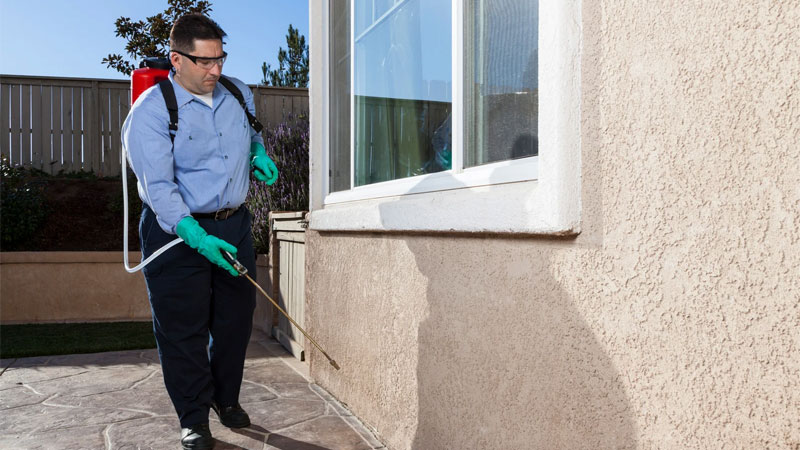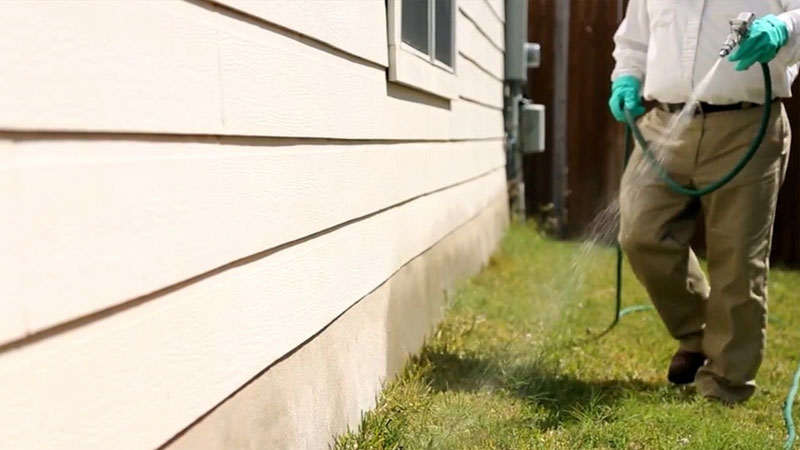One of the most confusing topics any pest control site can cover is that of exterminator costs. We’ll be perfectly honest here – we’d been sitting on this guide for a good two years before initially publishing it in 2002. We were determined that if we make it, we’re going to make it right.
What do we mean by that? Simply put, three are many variables involved in hiring a professional exterminator. So many, in fact, that it’s almost impossible to give an estimate that fits every situation. Even worse, the estimates can vary greatly from one website to another. We wanted to avoid causing as much of that confusion as possible.
The resulting guide (again, two years in the making, although all prices are updated annually) is what you’ve now got on your screen.
Why Every Site Has Different Price Ranges
Different states and cities have their own average costs for a given pest. Costs are generally based on how common they are and how much damage is typically done.
For example, bed bugs are a major problem in certain cities but quite rare in others. Exterminators out in the boon docks may not have the tools or equipment to handle an infestation on-hand, which means additional rental fees that get passed on to you.
Likewise, the frequency of visits will affect the final cost. For example, an area known for widespread cockroach infestations may result in the need for future visits or inspections.
This will affect the average price range in that area. Other sites often fail to point these factors out, which can result in one site having a price range very different from another.
That said, any given website will usually give you price ranges that tend to fit the region or state in which the author of that article is located. We don’t expect you to live where we do, so we’ve attempted to give ranges fitting a national average.
To accomplish this, we’ve examined information for various states and cities across the country. We then compiled price ranges that all of our research fits into.
This means that you may find your local minimum is higher than the one we list or the maximum is lower. But we’ve done our best to ensure you won’t get a minimum fee lower than our range or a maximum that exceeds the prices we list outside of extenuating circumstances (which we also have attempted to address).
In other words, we’ve done our best to predict most pest infestation circumstances and factor all of those into this article.
One-Time Visits vs Period Scheduled Service
Before we go any further, it’s a good idea to take a moment to look at single vs. repeat visits. Businesses and homeowners alike may wish to have periodic inspections. These can prove cheaper in the long run compared to scheduling one visit at a time. Periodic visits tend to include basic preventative treatments.
The following are the most common visit frequencies and what they’ll likely cost (based on a 3,000-square foot home):
Pest Control Visit Frequency Costs
| Visit Frequency | Lowest Estimate | Highest Estimate |
|---|---|---|
| Initial Visit | $85 | $350 |
| One-Time (inspection & treatment) | $300 | $550 |
| Monthly | $40 | $75 |
| Quarterly | $100 | $300 |
| Annual | $250 | $950 |
Note: Maximum estimates for rodents and other larger pests tend to be around two to three times that of those listed here.
Pricing Factors: Why Every Case is Unique
Before we get into the extermination cost for different pests, it’s important to understand why every case is unique. Your next-door neighbor may pay a very different final rate than you for the same company eliminating the same critter. Why is that?
Here are the five main factors that can affect exterminator prices and what they entail.
#1 – Accessibility
It goes without saying that the less work an exterminator needs to do to reach an infestation, the less it will cost. However, there may be some additional costs that you aren’t expecting.
For example, trapping a groundhog doesn’t require any invasive efforts, but dealing with termites may require the exterminators to drill holes in your walls or even remove sections of wall or ceiling.
This latter is a good reason to try and catch infestations early. Remember, the exterminator IS NOT responsible for patching up any holes created during the extermination process. Instead, you will need to hire a contractor or carpenter to come out and examine the treatment area in case the damage is more than cosmetic.
We won’t get into cleanup costs here, but it’s certainly something to keep in mind.
#2 – Extreme Measures
Sometimes a few traps or bombs aren’t enough and more drastic pest control treatments are needed.
For example, some pest scenarios (such as a bed bug infestation) may require the house to be tented,. This means your entire home will be sealed in tarps. Inside the tarp, the exterminators can then use tactics such as fumigation (on a much larger scale) or heat treatments to completely eliminate the problem.
These methods not only involve a lot of time, but the equipment can be quite expensive to own or operate. Thus, it’s not unusual for exterminators to rent the equipment as needed.
Tenting is quite expensive and can cost $1 to $4 per square foot. While that doesn’t sound like much, consider the fact that a typical home can range in size from a paltry 800 to huge 5,000 (or more) square feet, with up to 1/3 of that space involving non-living areas (such as the physical structure).
Most exterminators will price at 1,500 square feet as their median to include walls and other structures. Now, that $1 to $4 per square foot cost has turned into literally thousands of dollars. Most tented treatments thus range from $1,000 to $8,000 on top of the consultation and other fees.
#3 – Initial Consultation
You might be surprised to find out that an initial consultation fee isn’t always required. In fact, some pest control companies offer a free consultation. Others will waive the consultation fee if you decide to accept the treatment plan they suggest.
Consultations tend to include a basic inspection, as well as providing options for treatment or mitigation. However, in some cases, the initial consultation may involve the actual removal of a single pest and end up being the only visit required.
#4 – Size of Infestation
This should be a no-brainer, as tackling one critter is far easier than dealing with an entire colony.
Infestations will usually be calculated in with other factors, such as treatment area, whereas the cost for dealing with a couple rats or gophers might have a small additional fee on a per-pest basis.
#5 – Treatment Area
Unless you’re dealing with a single critter such as a raccoon or bat, the exterminator will need to treat a larger area. The cost for this is usually determined by square footage.
Now, depending on whether you’ve got a property-wide or house-wide infestation or if the infestation seems limited to one or two smaller areas, can make a huge difference on cost.
For example, let’s say you have some type of tiny black bugs in your kitchen, but an inspection reveals that the infestation hasn’t spread. In this case, you’ll likely have little or no price adjustment for the treatment area.
Compare that to a bed bug infestation that has spread to multiple rooms and may require a whole-house treatment to be safe.
To give a baseline, it’s estimated that treating an entire 1,500 square foot home can run around $200-600, depending on the pest. This is excluding any other costs incurred, such as follow-up visits or any complications the exterminator runs into.
#6 – Other Factors
Travel Expenses
If you live out in the middle of nowhere, you may be charged an additional amount for travel expenses (especially with today’s gas prices). This fee isn’t overly large, but it can add up when you’re already paying a large sum.
Protected Species
Additionally, you may need to pay a bit more if the species is protected, as the exterminator will have to have a special license to deal with that type of pest legally.
Environmentally Friendly Products
A third potential factor is whether you choose environmentally friendly products. These tend to be more expensive than the more commonly-used chemical agents.
Exterminator Cost for Common Pests
Costs can vary greatly from one pest to another. Here are some of those pests, what damage they can do, and an estimate of how expensive the treatment might be.
Ants
Ants can be a nuisance, but they’re also capable of causing serious property damage if they build colonies in your walls. Depending on the species of ant, a colony can be a few hundred to tens of thousands strong.
You can generally expect to get rid of an ant infestation for between $60 and $500. Be warned – a few species can be very prolific and may require fumigation, which can easily run a few thousand dollars.
Arachnids
Arachnids (such as spiders, scorpions, and ticks) can be both an indoor and outdoor problem. The biggest risk is their bite or sting, which can result in nasty side effects – especially if you have an allergy. Only a few select species are actually venomous enough to pose a threat to your or your pets.
In the case of ticks, Lyme disease is a serious bite concern. Treating arachnids will usually run up to $500, depending on the particular species involved.
Bees and Wasps
These can actually be quite tricky, as many species of bee are considered protected, threatened, or endangered. This means the exterminator will need to have special licensing to deal with them.
Depending on the species, bee or wasp removal can run around $95 to $1,500. However, it might be best to call a local beekeeper if you’re dealing with bees. Many keepers will remove the hive at little or no cost, adopting it into their apiary.
Fleas, Ticks, and Bed Bugs (Oh My!)
These little monsters are some of the most difficult pests to get rid of. For starters, they can hide just about anywhere and can survive for more than a year without food. On top of this, you’ll need to have multiple rounds of treatment using most methods, as the eggs are extremely resilient to pesticides.
Treatment tends to run somewhere between $200-400 per room for fleas and bed bugs, which can add up pretty quickly if the infestation has spread throughout the house.
In such cases, the exterminators may decide multiple visits won’t be enough and choose to tent your house. This can run anywhere up to $8,000 but will likely run closer to $3,000 for an average-sized 2 to 3-bedroom home.
Once tented, the exterminators may either fumigate (which will require a second visit to kill the nymphs) or conduct a heat treatment (which will take one visit but is far more costly). Ticks prefer the outdoors, so the cost will be based on your property size.
See Also: 10 Questions to Ask a Bed Bug Exterminator
Miscellaneous Critters
These are critters that generally require a simple pest removal, such as relocation. The damage varies greatly but may include disease risks or property damage.
Possible critters include bats, birds (ie: crows, sparrows, swallows, pigeons), large rodents (ie: gophers, woodchucks, rabbits), raccoons, skunks, etc. Most of these are trap and release, which can be cheaper than kill methods.
Outdoor Bugs
Outdoor pests such as ants, aphids, mosquitoes, weevils, and some types of cockroach can wreak havoc on your garden or lawn. They can also attract bigger pests (frogs, lizards, snakes, etc.).
Treatment can run anywhere up to about $500 and is often based on the size of the treatment area. In the case of mosquitoes, treatment may also involve fogging, especially if they get indoors.
Small Rodents
Mice, rats, prairie dogs, and similar rodents are usually easy to deal with, However, they can become more expensive if the target nested in your wall and had babies.
Indoors, they can damage wires and all sorts of surfaces, with some even chewing through concrete! Outdoors, they attract predators and can also do extensive damage ot your garden.
An exterminator will usually charge somewhere between $150 and $500 do deal with these pests.
Termites
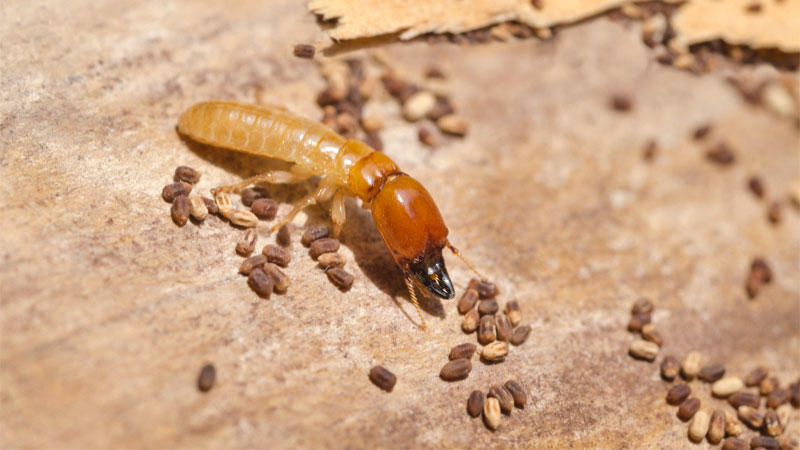
Termites can be a really nasty problem if not caught early on. They can do extensive structural damage, as well as destroying drywall and other surfaces. The initial inspection costs about what you’d expect for indoor pests, but it can really go uphill from there.
The most common treatment methods include drilling and injecting poison bait into the walls at the cheap end and fumigation as the worst case scenario. This can result in a cost of $700 to $3,000 (best case) and $1,000 to $8,000 (worst case).
Also, expect additional costs that can range from some minor cosmetic repairs to extensive work and a few days at a hotel.
Wood Borers
This critter deserves its own category and should not be confused with the wood borer bee. These beetles are important parts of the ecosystem and help break down decomposing wood. However, they’re a major problem when it comes to the wood in your home.
These pests require special attention, resulting in a hefty $1,500 to $5,000 treatment fee.
Pest Control Price List (by Pest)
| Pest | Low Estimate | High Estimate | Additional Measures |
|---|---|---|---|
| Ants | $60 | $500 | Fumigation |
| Bats | $200 | $650 | |
| Bed Bugs | $200 | $5,000 | Follow-up, fumigation, heat treatment |
| Bees and Wasps | $95 | $1,500 | Hive relocation (bees) |
| Carpet Beetles | $150 | $440 | |
| Cockroaches | $100 | $400 | Fumigation |
| Dust Mites | $145 | $350 | |
| Fleas | $75 | $400 | Follow-up, fumigation |
| Frogs | $200 | $500 | |
| Lice | $50 | $200 | |
| Lizards | $200 | $500 | |
| Misc. Wildlife | $250 | $600 | |
| Mosquitoes | $75 | $500 | Fogging |
| Moths | $150 | $300 | |
| Mice and Rats | $150 | $500 | |
| Scorpions | $50 | $300 | |
| Silverfish | $100 | $450 | |
| Snakes | $250 | $550 | |
| Spiders | $100 | $300 | |
| Termites | $700 | $8,000 | Follow-up, fumigation |
| Ticks | $150 | $500 | Follow-up |
| Weevils | $100 | $300 | |
| Wood Borers | $1,500 | $5,000 |
Choosing an Exterminator: Ask the Right Questions
When hiring a pest control service, it’s important to ask the right questions. This ensures you’ve chosen someone qualified for that pest, as well as having an idea of what you yourself are getting into.
There are three categories of question you’ll need to ask, the first of which you can often answer yourself with a little online research.
You obviously don’t need to ask a potential exterminator every single question listed below (especially for smaller jobs). However, the more you know about a service provider, the lower your risk is of getting poor results, paying too much, or even getting scammed.
Reputation
As mentioned, you can often answer these questions by looking online at the company’s website, Google Business Listing, Better Business Bureau, Yelp and similar resources. However, you’ll still want to have all of these answered before hiring. Thus, you may still need to ask the company at least one of these.
Question 1: How long has the company been in business?
Brand new businesses haven’t really had a chance to prove themselves, which can be a red flag. However, if the exterminator previously worked for a reputable company and can provide references as well as answer the other questions in this category, you might decide to go based on his personal reputation.
That said, if a company is brand new with no prior experience, you might want to pass unless it’s a single pest issue.
Question 2: Is your staff licensed, bonded, and insured?
These are absolutely vital! All pest control companies in the US must have a license. That license will need to be issued by the state you live in, since the requirements differ for each state.
Bonding is also important, as this covers liability for any accidental damages to your home. Insurance covers any accidental injury or damage to the exterminators and their equipment.
Question 3: Do you have customer references or feedback?
Any reputable company will be able to show you a list of reviews by their prior customers, both good and bad. Additionally, some (not all) exterminator companies may be registered with the Better Business Bureau. The BBB will give the business a rating based on customer reviews, which remain archived publicly.
Obviously, you want to see a lot of positive feedback, but be a little wary if the company has zero complaints. Nobody’s perfect, and seeing a couple negatives, no matter how minor, shows they’re being honest.
Question 4: How much training do your exterminators receive?
This question tends to get overlooked a lot. Many companies provide the bare minimum needed for an employee to retain their license. However, a really good company will provide frequent training. This keeps their staff up to date with the latest in technologies and techniques.
Training can equate to as little as an hour per month for a company that’s always on the go. However, smaller companies should put in some extra hours to make up for downtime.
Question 5: Are you qualified to handle my pest? (Situational)
Some pest types are protected by law, meaning an exterminator will need special licensing to handle that pest. Some licenses may include kill methods, but most will only permit relocation.
If a pest control specialist is not certified by the government to deal with a protected or endangered species invading your property, hiring them could result in legal repercussions for the company that may also hit you. Of course, this question only applies to critters that have some form of protected status. You don’t need to ask this question when dealing with most problems, such as a raccoon or termites.
However, many species of bees are protected. For honey producers, it’s often best to first contact a local beekeeper who will adopt the hive and is already certified to handle bees.
Consultation and Battle Plan
This second category will establish some boundaries on what the exterminator can and cannot provide to help ensure the best possible experience. These should be asked during the initial phone call (or a follow-up call if you needed to do additional research) and should be answered BEFORE they send someone out to your home.
Question 1: Do you offer a written quote?
When the company sends someone to inspect your property, you’ll want to get everything in writing. This protects you in case the exterminator fails to perform all the tasks described by the inspector, as well as preventing any surprise price adjustments.
Remember, the inspector works for the company and may even be the exterminator you get for the treatment phase. However, sometimes it’s a senior member of the company who no longer actively treats homes and will be delegating the task to a junior employee.
Having things in writing can prevent a lot of headaches and financial woes down the road.
Question 2: Do you offer a guarantee?
A service guarantee is something easily overlooked. However, it’s something any reputable company will stand by. Make sure that guarantee is in writing and you read all of the fine print before you sign.
The most common service guarantees will include a clause that the company will handle any surprise resurgence of a pest at no additional cost and/or will provide a certain number of follow-ups (price included in the quote) to ensure an infestation has been completely dealt with.
Question 3: How do you decide on the treatment method?
Depending on whom you ask, this question can get very complicated. Look for the answer to contain such elements as the degree of infestation, resistance to treatments, considerations for pets or other factors, etc.
Or, if you want to get down and dirty, you can turn this question into an entire FAQ section of its own.
Question 4: What pesticides do you use?
This is a key question on multiple fronts. First of all, it will determine how safe their chemical treatments are. Second, it can tell you if the company offers eco-friendly options.
Third, having a list of pesticides can allow you to research each product to get a better idea of the short-term and long-term effects of using said product.
Question 5: Are your pesticides pet-safe and kid-safe?
A lot of products out there today are safe for use around children and pets or will dissipate after a few days, but some can leave behind toxic residues that can seriously harm a child or pet that comes into contact with them.
Be sure when asking this question that you tell the exterminator what types of pets you have and whether you have small children. This information allows them to adjust their treatment plan accordingly.
Treatment Options
This can be asked at the initial consultation or prior to getting a quote. It also covers some of the most important aspects of the treatment. Be sure to get these answered BEFORE signing a written quote to avoid any nasty surprises.
Question 1: Will we need to vacate the house?
In the case of large-scale treatments such as fumigation or a whole-house heat treatment, you may be required to vacate for a few days to a week or more.
Be sure to get a timeframe if the answer to this is yes. You’ll need to ensure you, your family, and your pets (and houseplants) all have temporary lodgings.
Question 2: Do we need to clear the house?
For some treatment types, you may need to remove furniture, clothes, or other items. This is especially true of heat treatments, which can damage or destroy your possessions.
In the case of fumigation, porous materials may need to be removed. Anything left in the treatment area will need scrubbed down.
You may also wish to ask if the pest control professional will help guide your family on how to inspect items for bed bugs or similar pests. During the removal process, self-inspections can ensure you aren’t accidentally sheltering the enemy.
Question 3: How permanent is the treatment?
This is something easy to overlook, since most options are one-time treatments. However, in a few cases, the exterminator might have to make follow-up visits to ensure the infestation is completely removed.
Bed bugs, fleas, and a few other critters have eggs that will resist all but the most extreme treatments, requiring additional treatments. Such situations should be pointed out up front and be a written part of the treatment plan.
Question 4: Do you offer prevention and exclusion tips?
We here at RMC constantly stress that preventative measures are the best medicine. Sadly, professional extermination companies often forget to tell you how to prevent future problems.
At some point, a good exterminator company will take you around the home. They’ll point out potential problems and explain what you can do to avoid attracting pests in future.
Some Final Notes
Hiring an exterminator can be scary. The good news is those high pest control costs you hear about are often for extreme cases. Most common household pests can be treated on a low budget.
It’s also important to remember that the cost of, say, termite treatments is far cheaper than repairing the structural damage if the colony isn’t dealt with.
In many cases, you can use bait stations, glue traps, and other DIY extermination methods to combat a severe infestation until the pros arrive. Doing so can also often let you get pictures of a bug corpse so the exterminators can identify it.
This can often lead to a more accurate cost estimate in the event that pest requires special treatment.
- How to Get Rid of Hawks - March 8, 2024
- How to Get Rid of Pill Bugs (Rolly Pollies) - March 1, 2024
- How to Get Rid of Groundhogs (Woodchucks) - February 5, 2024

